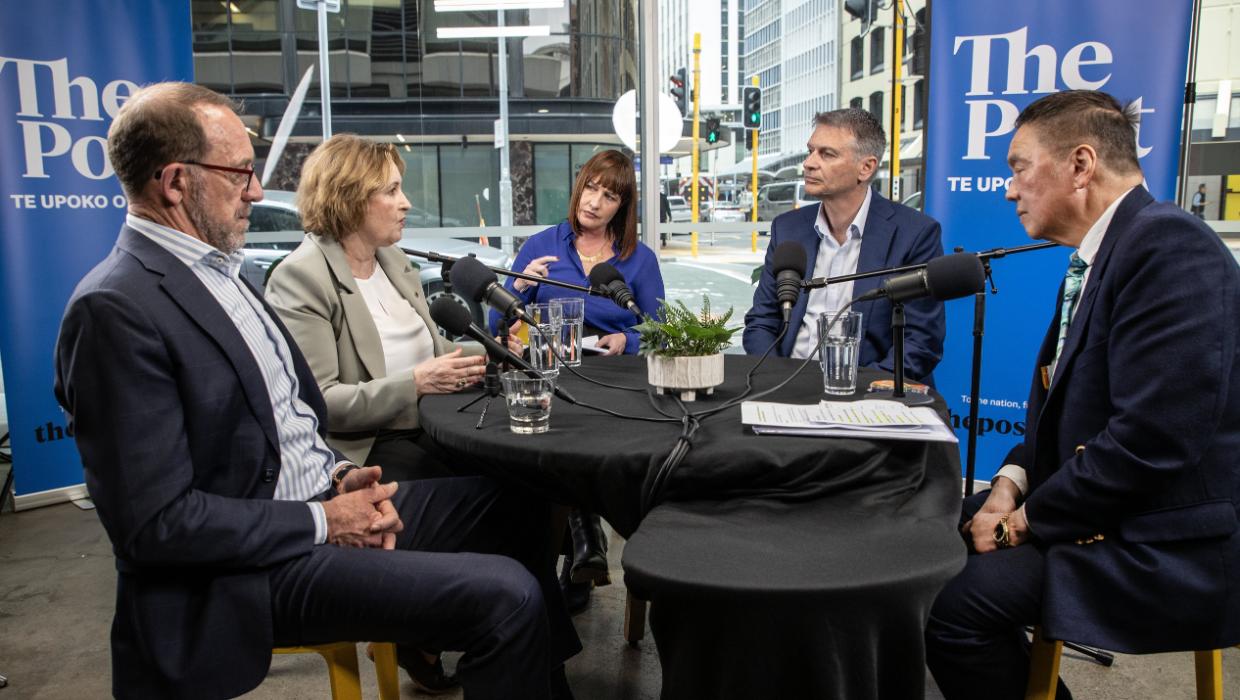Politics
Wellington Mayoral Candidates Face Challenges Post-Election

The day after the mayoral election in Wellington brings a moment of reflection for the candidates who have campaigned tirelessly. With a demanding schedule that included over 40 candidate meetings, many of which were held in rapid succession, those vying for the position are likely feeling both exhausted and relieved that the campaign is finally concluded.
The election process has been marked by intense competition, featuring scandal and confrontational exchanges among candidates. In contrast, Auckland’s mayor, Wayne Brown, has participated in only three candidate meetings and has relied heavily on polished social media posts to connect with voters. Despite this, Brown is widely expected to secure a comfortable victory, prompting questions about the importance of engaging with voters in person.
Regardless of the outcome, it is clear that the Wellington candidates possess a deep conviction in their ability to lead. Each candidate believes they are the right choice for the role, which will be essential as they face the challenges ahead. Wellington has a history of local government difficulties, and the next council will likely encounter issues similar to those experienced in recent years.
The past decade has witnessed a series of mayors who struggled to garner support for their agendas, often leading to a lack of coherent leadership. This situation arises from the local government voting structure, where mayors are directly elected by the public. Unlike prime ministers or party leaders, who can be ousted by their party’s majority, a mayor remains in office unless voted out by the public.
Wellington City Council has long been characterized by internal conflict and personality clashes. Recent mayors have frequently lacked the necessary skills to unify these factions under a cohesive strategy. Yet, successful examples exist across the country, where mayors have effectively steered councils through difficult decisions while maintaining a majority.
Many voters remain unaware of the councillors who will play a crucial role in shaping the next three years. Often, the information available about these candidates comes from promotional flyers filled with vague promises, resulting in low voter engagement during local elections. This disengagement allows candidates with specific agendas to gain power, sometimes misaligned with the majority’s views.
Low turnout in local government elections is a pressing issue. Many citizens feel uninformed and unmotivated to participate, which ultimately undermines the democratic process. As the election concludes, voters must confront their role in the local government system.
Greater awareness and engagement in the electoral process can empower citizens to influence the future of their communities. With the local elections now complete, it is crucial for residents to reflect on their participation and consider ways to strengthen their involvement in shaping their local government.
As Wellington prepares for its next chapter, the responsibility lies with both the elected officials and the electorate to ensure a more engaged and informed community. What steps will be taken to reverse the trend of apathy and enhance voter turnout? The opportunity for change is now.
-

 World4 months ago
World4 months agoTest Your Knowledge: Take the Herald’s Afternoon Quiz Today
-

 Sports4 months ago
Sports4 months agoPM Faces Backlash from Fans During Netball Trophy Ceremony
-

 Lifestyle4 months ago
Lifestyle4 months agoDunedin Designers Win Top Award at Hokonui Fashion Event
-

 Entertainment5 months ago
Entertainment5 months agoExperience the Excitement of ‘Chief of War’ in Oʻahu
-

 Sports4 months ago
Sports4 months agoLiam Lawson Launches New Era for Racing Bulls with Strong Start
-

 World5 months ago
World5 months agoCoalition Forms to Preserve Māori Wards in Hawke’s Bay
-

 Health4 months ago
Health4 months agoWalking Faster Offers Major Health Benefits for Older Adults
-

 Lifestyle4 months ago
Lifestyle4 months agoDisney Fan Reveals Dress Code Tips for Park Visitors
-

 Politics4 months ago
Politics4 months agoScots Rally with Humor and Music to Protest Trump’s Visit
-

 Top Stories5 months ago
Top Stories5 months agoUK and India Finalize Trade Deal to Boost Economic Ties
-

 Health2 months ago
Health2 months agoRadio Host Jay-Jay Feeney’s Partner Secures Visa to Stay in NZ
-

 World5 months ago
World5 months agoHuntly Begins Water Pipe Flushing to Resolve Brown Water Issue









